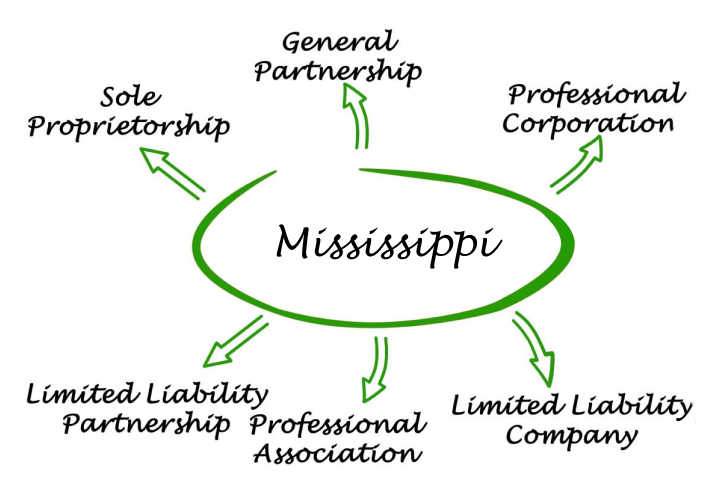- Alabama
- Alaska
- Arizona
- Arkansas
- California
- Colorado
- Connecticut
- Delaware
- Florida
- Georgia
- Hawaii
- Idaho
- Illinois
- Indiana
- Iowa
- Kansas
- Kentucky
- Louisiana
- Maine
- Maryland
- Massachusetts
- Michigan
- Minnesota
- Mississippi
- Missouri
- Montana
- Nebraska
- Nevada
- New Jersey
- New Mexico
- New York
- North Carolina
- North Dakota
- Ohio
- Oklahoma
- Oregon
- Pennsylvania
- Rhode Island
- South Carolina
- South Dakota
- Tennessee
- Texas
- Utah
- Vermont
- Virginia
- Washington
- West Virginia
- Wisconsin
- Wyoming
How To Search New Hampshire Business Entities
- Uncover In-Depth Information on Business Entities
- How To Find the Owner of a Business Entity in New Hampshire?
- Why Conduct a New Hampshire Entity Search?
- Who Holds Data for New Hampshire Business Entity Search?
- What Entities Can You Register in New Hampshire?
- How Do I Check If a Business Entity Name is Taken in New Hampshire?
- How Do I Set Up a Business Entity in New Hampshire?
- How Much Does It Cost To Start a Business In New Hampshire?
- Additional Information Available on the New Hampshire Secretary of the Commonwealth's Website
- FAQs About Business Entity Searches in New Hampshire

There are over 177,000 business entities registered in New Hampshire, with over 50,000 of these entities operational in the state. These entities include corporations, nonprofits, LLCs, LLPs, and LPs. The New Hampshire Secretary of State oversees business entity registrations while ensuring businesses comply with state laws. Its website provides a database of registered business names, allowing individuals to check if a business entity complies with state laws.
Business entity searches are essential for existing businesses, investors, and the general public. It ensures that individuals and businesses are dealing with a legitimate entity and that the entity is duly registered and operational. Business entity searches help to understand the structure and activities of a business.
Choose Your Search Criteria
- Business Name:
Use the full or partial name of the business entity
- Business ID:
Search entity records using the entity identification number
- Filing Number:
Search business records using the filing number
- Registered Agent:
Use the full name of the registered agent to access business entity records
Review Search Results
The search result provides information on a list of entity records matching the search criteria. Typically, the information includes the business name, the business ID, the previous name used by the entity, the address of the principal’s office, the registered agent's name, and the status of the entity.
Further Assistance
For further assistance, you may contact the New Hampshire Secretary of State Office.
How To Find the Owner of a Business Entity in New Hampshire?
Public search engines may yield information about business entities registered in New Hampshire, including information about business owners. However, the results are often incomplete or inaccurate. This is mainly because most businesses do not publicly disclose their ownership structures.
Generally, government agency databases provide the most up-to-date information on public records, including records containing information on the owners of business entities. The New Hampshire Secretary of State’s website provides detailed information on business entity owners, including their physical and mailing addresses and designation. Other resources that may provide access to information on owners of business entities in New Hampshire include:
- Chambers of Commerce:
The local chambers of commerce offices in New Hampshire maintain public search tools for businesses within their jurisdictions. The directory provides information on business entity owners.
- Better Business Bureau (BBB):
The Better Business Bureau (BBB) provides free access to information on companies in New Hampshire, including their accreditation status, customer reviews, and owner information.
- Other Public Records:
Additional information about business owners may be found in public records such as real estate, tax, or court records.
Why Conduct a New Hampshire Entity Search?

Consumers require transparency when engaging with businesses. Conducting business searches assures consumers that the entity is legally registered and authorized to operate in New Hampshire. Confirming details like the business status, operational history, and compliance with state laws reassures consumers they are interacting with a reputable organization.

Investors conduct business entity searches to make informed decisions or minimize investment risks. Entity searches help investors identify persons behind the business, verify that the company is in good standing, and uncover past changes in ownership or legal disputes.

Businesses that use suppliers or vendors conduct business searches to verify the legitimacy of those suppliers. Entity searches help companies verify suppliers’ legal registration to conduct business in New Hampshire. Furthermore, it ensures businesses know who owns and manages the supplier’s business.

Entity searches are effective for identifying and avoiding fraudulent activities. Entity searches help detect whether a business has inactive or dissolved status and check the names of registered agents. This information can help individuals and businesses avoid scams as fraudulent businesses lack proper registration.
Who Holds Data for New Hampshire Business Entity Search?
What Entities Can You Register in New Hampshire?

Starting a business in New Hampshire involves choosing the right type of business entity to match your operational needs, business size, management structure, and overall business goals. New Hampshire offers several business entity types, each with specific legal requirements and benefits. The entities you can register in New Hampshire include:
Corporations are legal entities separate from their owners. New Hampshire recognizes two types of corporations:
- C Corporations
A C corporation offers liability protection to its shareholders. The owners are not personally liable for the company’s debt. C corporations are taxed separately from their owners, leading to double taxation. The corporation pays taxes on profits, while shareholders pay taxes on dividends received.
- S Corporations
Provides limited liability protections to its shareholders. Profit and losses are passed directly to the shareholders, avoiding double taxation. The shareholders report taxes on their personal income tax returns.
They are separate legal entities distinct from their owners. LLCs offer limited liability protection. Members of the entity's assets are protected from the business debts and obligations. Its tax structure is flexible. Typically, it is passed to members to report on their tax returns.
Partnerships are owned and managed by at least two individuals. Partnerships are not separate legal entities. Instead, they are considered an extension of the partners. The partners share personal liabilities for the debts and obligations of the business and remit taxes on their personal tax returns.
LPs involve two types of partners: general partners who manage the business operations and limited partners who invest capital but do not manage the business. Limited partner’s liability is limited to their investment, while general partners have unlimited liability for the business debt.
In LLPs, all partners have limited personal liability, protecting them from business debts and obligations. Profits and losses are passed to the partners, who report them on their individual tax returns.
Sole proprietorships are owned and operated by a single individual. There is no legal distinction between the business and its owners. Therefore, the owner is responsible for all debts and liabilities of the business. In sole proprietorships, the business does not pay tax. Instead, the owner reports taxes on their personal income tax returns.
Nonprofits are established for religious, charitable, scientific, and educational goals, not-for-profit generation. Nonprofits may apply for tax-exempt status, avoiding income taxes. Income from nonprofits is used to further the corporation's cause rather than distributed as income among its members.
PCs are designed for licensed professionals such as lawyers, doctors, accountants, or other professional services. Shareholders hold the same professional licenses and have limited liability for business debts. PCs are subject to corporation taxes.
Foundations are a type of nonprofit organization focused on charitable or other public benefits activities. They are established to support a cause rather than for profit. Foundations are eligible for tax-exempt status.
Trademarks are registered to establish brand identity and protect against unauthorized use. Registering a trademark has no direct tax benefits but adds value to the business brand.
How Do I Check If a Business Entity Name is Taken in New Hampshire?
How Do I Set up A Business Entity in New Hampshire?
Setting up a business entity in New Hampshire begins with filing a Certificate of formation for LLCs and foundations and Articles of Incorporation for all other business entities. Generally, all business registered in the state falls under one of the following:
- Profit Entities:
Business entities created to make profits for their shareholders
- Nonprofits:
Organizations formed solely for charitable, religious, or societal purposes. Profit generation is not the goal.
- Foreign Organizations:
Businesses incorporated outside New Hampshire but want to commence business activities in the state
- Professional Corporations:
Registered by licensed professionals
You may set up a business entity in New Hampshire by following the under-listed steps:
- Use the Name Availability Guidelines to select an appropriate business name
- FIle the relevant incorporation documents
- Obtain county of city business licenses if required
- Get a professional license if required
- File for Beneficial Ownership Report (BOI) with FINCEN
- Register the business with the New Hampshire Department of Revenue Administration
- Get an Employer's Identification Number from the Internal Revenue Service (IRS)
How Much Does It Cost To Start a Business In New Hampshire?
Starting a business in New Hampshire involves both initial and ongoing costs. Generally, the cost to set up a business depends on the business entity, the nature of the business operations, and the required licenses or permits. The cost to register a business in New Hampshire is as follows:
- Nonprofits:
$25
- Trade Names:
$50
- All other Business Entities:
$100
There is an annual report fee of $100 with an additional $50 for late fee. Additionally, certain businesses require specific licenses or permits to operate. The fee varies, depending on the type of business. Generally, it costs between $50 to $400.
Additional Information Available on the New Hampshire Secretary of State’s Website

The following services are available on the New Hampshire Secretary of State website:
- File an Annual Report:
File your annual report and request a paper form annual report.
- Good Standing Certificate:
Order a good standing certificate.
- Update Business Records:
Make updates to your business entity records.
- Business FAQs:
Frequently asked questions on registering a business, name reservations, filing BOI reports, annual reports, change of entity agents, and fees.
- Business Resources:
Forms and fees, legal notices, business entity laws, registered agents, business status definitions, rules for business names, and the Corporate Transparency Act.
- Contact:
Email address, phone number, and hours of operations of the New Hampshire Secretary of State office.
FAQs About Business Entity Searches in New Hampshire
Here are common questions about business entity searches in New Hampshire and their answers.
- Why would I need to search for a business entity in New Hampshire?
You may need to search for business entity records in New Hampshire to verify a business’s legitimacy and legal status. You may also search entity records to check if the business is active and in good standing.
- What types of entities can I search for in New Hampshire?
You may search for corporations, partnerships, nonprofits, professional corporations, foundations, trusts, LLCs, LLPs, and LPs in New Hampshire.
- Where can I perform a business entity search in New Hampshire?
You may perform business entity searches in New Hampshire using the Business Records Search tool.
- What information do I need to conduct an entity search in New Hampshire?
To conduct entity searches in New Hampshire, you will need to provide the business name, business ID, registered agent name, or filing number.
- How do I find the official name of a New Hampshire business?
You may find the official name of a New Hampshire business using the Business Records Search web page.
- Can I search for foreign entities in New Hampshire?
Yes. You can search for foreign entities registered outside New Hampshire but operating as foreign entities in the state.
- What information can I find in the New Hampshire entity search?
You can find the business entity name, business ID, business type, principal office address, state of incorporation, business status, physical and mailing address, business purpose, trade name, and trademark information.
- How do I verify if a New Hampshire business is in good standing?
You may verify if a business is in good standing using the Certificate of Good Standing Search tool.
- Can I search for an entity in New Hampshire by its owner’s name?
Yes. You may use the full or partial name of the business owner to search for an entity in New Hampshire.
- How often is the New Hampshire business entity database updated?
The New Hampshire Secretary of State updates its database within 24 hours of processing.
- Can I obtain copies of business filings in New Hampshire?
You may use the Business Records Search to search, view, and print copies of business filings. Certified copies of business filings may be requested by email for a fee.
- How do I find out who the registered agent of a New Hampshire business is?
The Business Records Search provides information on the registered agents of New Hampshire businesses.
- How can I search for New Hampshire businesses by their tax ID number?
No. The search tool does not offer business entity searches using the entity's tax ID number.
- What should I do if I can’t find a business entity in the New Hampshire search?
Ensure the name is spelled correctly. Use the search filters to refine the search. Try different variations of the name. Use the New Hampshire State Archives for older business entity searches.
- Uncover In-Depth Information on Business Entities
- How To Find the Owner of a Business Entity in New Hampshire?
- Why Conduct a New Hampshire Entity Search?
- Who Holds Data for New Hampshire Business Entity Search?
- What Entities Can You Register in New Hampshire?
- How Do I Check If a Business Entity Name is Taken in New Hampshire?
- How Do I Set Up a Business Entity in New Hampshire?
- How Much Does It Cost To Start a Business In New Hampshire?
- Additional Information Available on the New Hampshire Secretary of the Commonwealth's Website
- FAQs About Business Entity Searches in New Hampshire